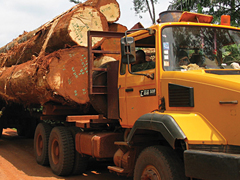|
||||||||||||||||
|
||||||||||||||||
%
responses 2009 ('05) |
||||||||||||||||
y4 |
y8 |
|||||||||||||||
| Think about what the people were saying in the video. | ||||||||||||||||
| 1. Try to explain what the problem is. | not marked | • (•) | ||||||||||||||
| 2. What do you think could happen if the problem is not sorted out? | ||||||||||||||||
| people
upset/arguments/protests legal action |
56 (42) | |||||||||||||||
| possibility
of violent confrontations |
34 (41) | |||||||||||||||
| possibility
of damage to equipment |
2 (4) | |||||||||||||||
| trees continue to be logged | 23 (23) | |||||||||||||||
| 3. What are some of the different ways that people can sort out their problems? | ||||||||||||||||
| talk about the issues | 55 (50) | |||||||||||||||
| bring
in an outside expert (e.g. mediator/court/principal) |
32 (23) | |||||||||||||||
| negotiate
a compromise between groups (e.g. pay compensation to owner of logging rights) |
36 (43) | |||||||||||||||
| work to have rules/laws changed | 5 (3) | |||||||||||||||
| decide through a vote (majority rules) | 4 (3) | |||||||||||||||
| Overall merit/comprehensiveness of ideas: | very strong | 1 (1) | ||||||||||||||
| quite strong | 10 (8) | |||||||||||||||
| moderate | 52 (51) | |||||||||||||||
| weak/nonexistent | 38 (41) | |||||||||||||||
Total
score: |
6–11 |
5 (7) | ||||||||||||||
| 4–5
|
28 (24) | |||||||||||||||
| 3
|
25 (25) | |||||||||||||||
| 2
|
23 (23) | |||||||||||||||
| 0–1 | 19
(21) |
|||||||||||||||
| Subgroup Analysis [Click on charts to enlarge] : |
| Commentary: |
| There
was very little change between 2005 and 2009 in the overall scores,
although in 2009 a higher percentage of students articulated effects
on people, rather than things (equipment, logging). Boys and girls
performed similarly. Pakeha students scored higher overall than Mäori
or Pasifika students. |

